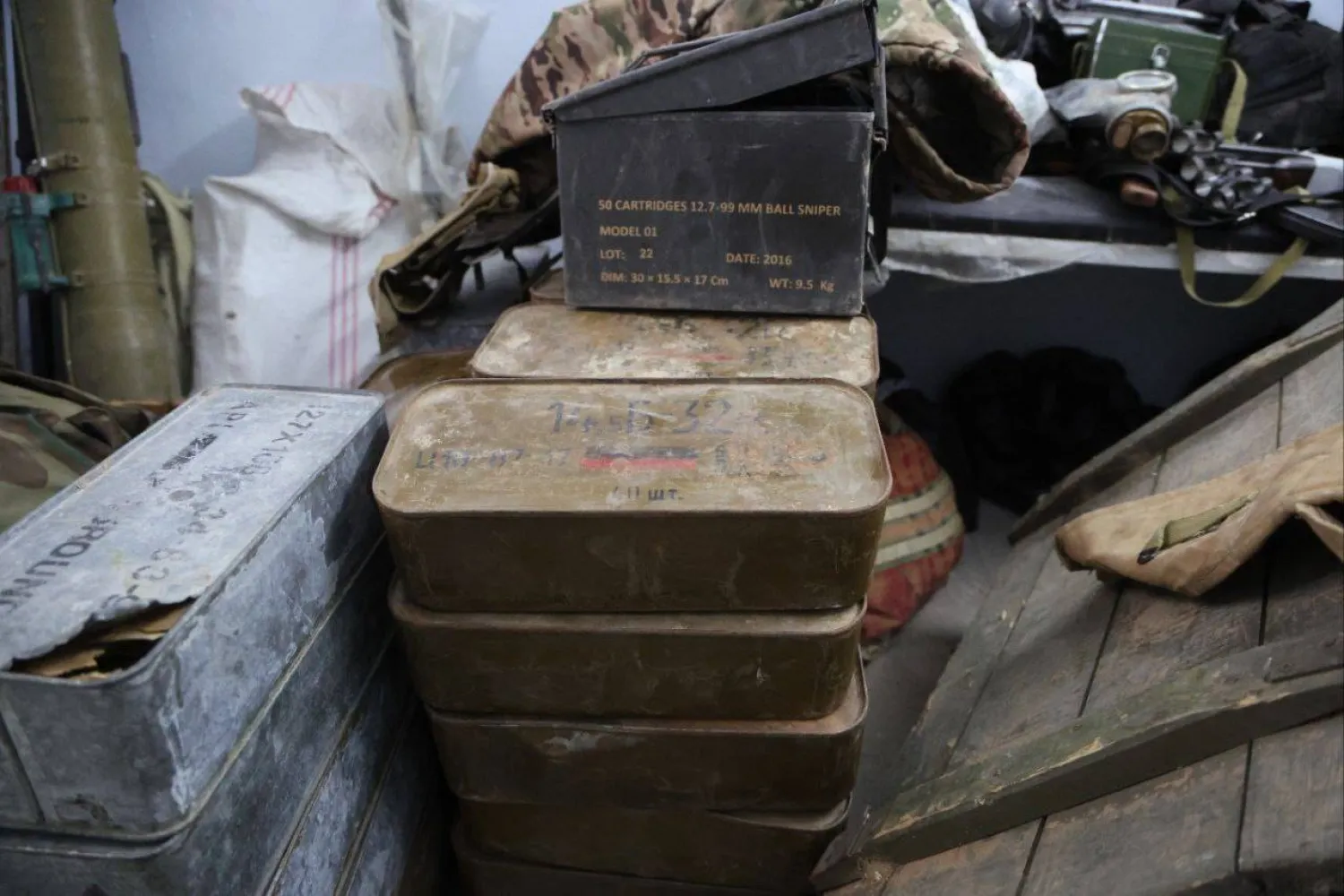The internal security command in Syria’s eastern Deir Ezzor province has banned remnants of the former regime from owning or carrying weapons, following the completion of the initial phases of a sweeping security crackdown.
The campaign, which focused on the city of al-Mayadeen near the Iraqi border, led to the arrest of dozens of wanted individuals and the seizure of large quantities of weapons and ammunition.
Col. Derrar al-Shamlan, head of internal security in the province, said 85% of the operation had been completed and described it as a major effort to dismantle “sources of chaos and threats to public safety.”
“A firm decision has been issued to prohibit the possession or ownership of all types of weapons by remnants of the ousted regime and their collaborators, due to the threat they pose to community security and stability,” Shamlan said.
He added that the ban followed confirmed reports that such weapons had been used in homicides and acts of intimidation. Shamlan also announced the completion of the second and third phases of the campaign, with plans to extend operations to the rest of Deir Ezzor province.
Security forces also launched a weapons crackdown on areas once under Iranian influence during the era of the former regime, security sources told Asharq Al-Awsat.
The operation comes amid growing concerns that Iran could activate loyalist sleeper cells in Syria to stage attacks, as tensions escalate between Tehran and Tel Aviv. Analysts say such moves may be aimed at widening the conflict and easing pressure on Iran from Israeli airstrikes.
According to security officials, the campaign focused on disarming groups in the city of al-Mayadeen. Authorities exercised extreme caution during the raids, given the tribal nature of the region.
The operation was conducted in coordination with the Ministry of Defense, whose forces sealed off the area and imposed a curfew.
Officials emphasized that cooperation with local residents and tribal leaders was a priority. The Syrian leadership, the sources said, is relying on tribal elders to help restore and maintain security across the country’s east.
Dozens of people have been arrested in the sweeping campaign in Deir Ezzor, with local sources estimating the number of detainees at more than 70. The charges include illegal weapons possession, drug trafficking, smuggling, murder, and failure to comply with reconciliation procedures, residents told Asharq Al-Awsat.
According to the sources, over a third of those detained were linked to Iran’s Revolutionary Guard Corps (IRGC) and affiliated militias. Many of them, they said, were well-known in the area and had long been a source of fear and unrest for local communities.
“There is widespread frustration that the government delayed cracking down on these individuals,” one source said, noting that some of those arrested had joined the public security apparatus, only to resume their previous illegal activities.









